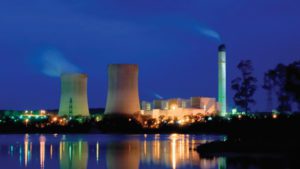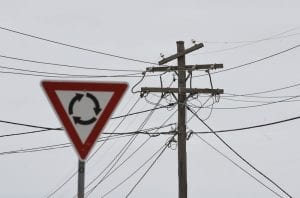
After almost a decade of efforts to achieve a climate benefit of up to 0.5°C reduction in global temperature by the end of the century, 197 nations have finally reached agreement on the Kigali Amendment to the Montreal Protocol. At the conclusion of unprecedented overnight negotiations extending past 7am last Saturday in the Rwandan capital, a face-saving compromise was finally achieved.
Negotiations at the Montreal Protocol on an amendment to include the hydrofluorocarbons or HFCs, potent synthetic greenhouse gases used primarily as refrigerants, began in earnest in 2009.
But the first concerted efforts to draw international attention to the problem of projected rapid growth in HFC emissions began at the UNFCCC COP13 in Bali in 2007, where the London and Washington based Environmental Investigation Agency worked for two weeks with several large boxes of briefing notes to teach observers and negotiators alike to speak about the “F for Forgotten” F-gases.
Highly regarded scientific papers by the Dutch climate scientist Guus Velders (et. al.) in the Proceedings of the National Academy of Sciences (PNAS) in 2007 and 2009 were crucial in gaining the attention of the highest levels of the Obama administration, and so the long road to the historic agreement in Kigali last week began.
As Obama’s Presidential statement on the agreement concludes, “diplomacy is never easy”. In spite of its flaws and shortcomings, the compromise brokered to deliver the climate legacy sought by the US is a significant achievement.
Jubilation that might have been expected by the achievement of the “largest temperature reduction ever achieved by a single agreement” (according to one seasoned observer) has been tempered by delays in implementation of restrictions on use of HFCs granted to a block of recalcitrant developing countries including India, Pakistan, Iran, Iraq and Arab Gulf states.
As it stands, the Kigali Amendment to phase down HFCs is expected to deliver emissions abatement of 70 billion tonnes of CO2-equivalent by 2050, under a legally binding agreement supported by financial mechanisms with a long track record of success in addressing CFCs and HCFCs.
According to Clare Perry, EIA UK Climate Campaign Leader, “Compromises had to be made but 85% of developing countries have committed to the early schedule starting 2024, which is a very significant achievement.”
Optimistic observers in Kigali make the point that once agreement has been reached on the goals to be achieved by the Montreal Protocol, the process of adjustments at future meetings makes acceleration of target and timeframes feasible as solutions become more widely acceptable and costs reduce.
More cynical participants remain less convinced that market developments will overtake the HFC phase-down schedules determined by policy makers.
Complex arguments over funding mechanisms, acceptance of new and existing technologies, and the pervasive influence of fluorocarbon producers on committees setting restrictive standards on flammable hydrocarbon refrigerants like propane and isobutane will all play critical roles in determining outcomes.
While the United States needs to be recognised for sending Secretary of State John Kerry to Kigali to seal the deal, and for working meticulously with India (and previously China) to overcome many obstacles, the regulatory restrictions on future proof natural refrigerant solutions in place in the US are prohibitive compared to European (and Australian) standards.
Efforts to address this situation by environmental NGOs and multinationals in the fast moving consumer goods sector alike are as yet to show any prospect of success.
Absurd as it is, barbeques and internal combustion engine driven vehicles remain permissible uses of hydrocarbons, yet relatively minute charges of hydrocarbon refrigerants in domestic fridges, commercial refrigeration cabinets, and mobile and stationary air conditioning systems remain unthinkable hazards in the Land of the Free.
In a world in which air conditioning is the cause of the largest growth in HFCs, and which is likely to have another 700 million air conditioners by 2030, the environmental impacts of the gases used in these systems are not trivial.
In many respects, the signing of the Kigali Amendment on HFCs is the long awaited official starting gun in the race between the natural refrigerants (including the environmentally “friendly five”, ammonia, carbon dioxide, hydrocarbons, air and water), and the new generation of unsaturated HFCs, or HFOs – ‘hydrofluoro-olefins’ such as the heavily promoted car air-conditioning gas R1234-yf (among many others).
This new generation of patented refrigerants, and many complex blends, are being marketed as having “low” or “moderate” global warming impacts that are unlikely to withstand scrutiny.
Winners in this race will be determined by the extent to which warnings of the need to avoid expensive and environmentally questionable HFOs are heeded, and exhortations to leapfrog to future proof refrigerant solutions are pursued.
It is a seldom recognised tragedy of the Montreal Protocol is that contrary to frequent assertions, the global warming impacts of the HFCs were very well known when they were introduced in the early 1990s. Greenpeace International repeatedly warned against the climate threat posed by HFCs, and constructively campaigned to champion the use of hydrocarbons in domestic fridges for many years.
In the policy decisions on alternatives to the CFCs, the Greenpeace voice was shouted down and ignored. In spite of trenchant opposition at the time, they were vindicated by subsequent decisions in the global market (even if not yet in the US).
The Kigali Amendment on HFCs tacitly recognises that the hippies were right all along, but lamentably none of the current players have been gracious enough to say so.
Brent Hoare has recently been elected as a Greens Ward 2 Blue Mountains City Councilor, and was unable to attend the Kigali Meeting of the Parties but is a long-serving observer at Montreal Protocol meetings and advocate of natural refrigerant solutions.








